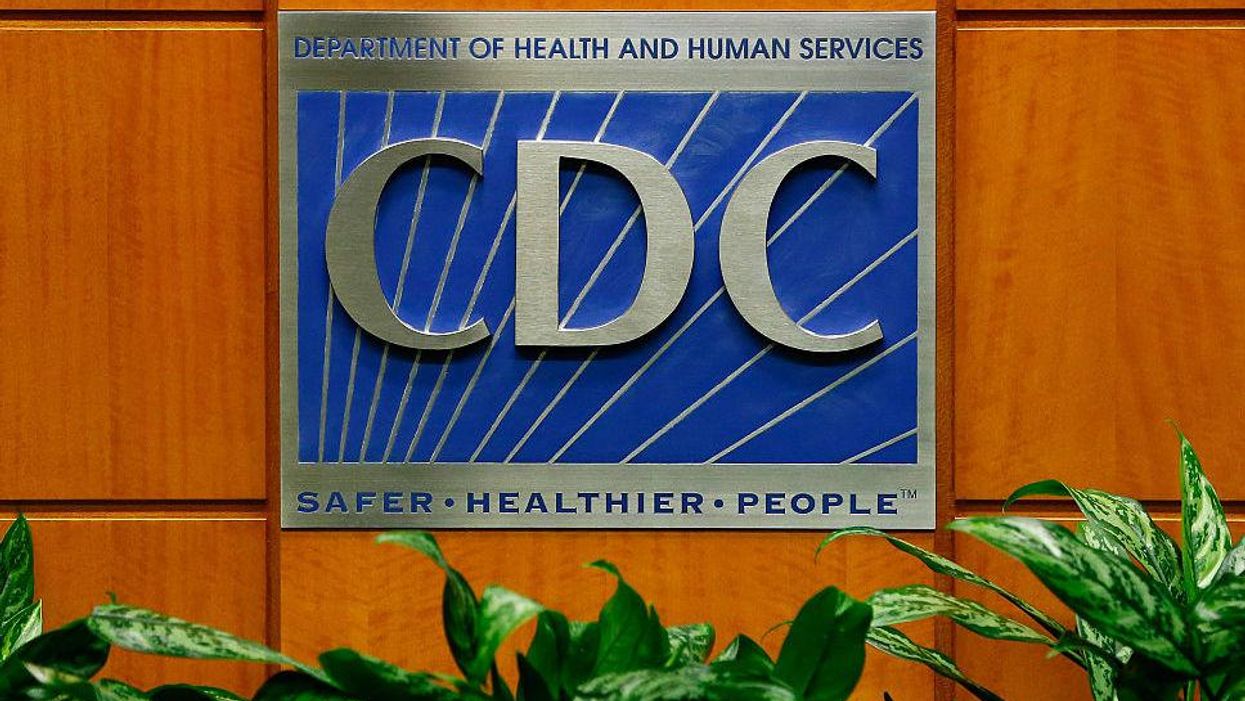
Kevin C. Cox/Getty Images

Some officials inside the Centers for Disease Control and Prevention reportedly disagree with the public health agency's basis for reversing its face-mask guidance, asserting that data driving the revision is flawed or skewed.
The CDC reversed its mask guidance last week, citing a spike in COVID-19 cases that it attributes to the Delta variant. Whereas CDC guidance had said that fully vaccinated individuals did not have to wear a face mask indoors, the CDC now says that even fully vaccinated Americans in regions with hig- transmission rates of COVID-19 should mask up.
Meanwhile, the CDC has released data that officials claimed show that fully vaccinated people spread COVID-19 as readily as unvaccinated people, pointing to data that allegedly showed similar levels of viral load in vaccinated and unvaccinated people.
According to the Wall Street Journal, some officials inside the CDC disagree with the agency's public communication.
From the WSJ:
The meaning of some of the viral load data has been disputed. Inside the CDC, some officials disagree with the agency's conclusion that vaccinated people who become infected may spread the virus as readily as the unvaccinated, and argue that more testing needs to be done, including tests that measure how infectious virus particles are, according to a person familiar with the matter.
At the center of the issue is the study the CDC released as evidence to justify its mask guidance reversal.
"They're making these decisions on the basis of extremely weak and unreliable data, and at the same time not doing the necessary work to reduce uncertainty among the population," Vinay Prasad, a physician and professor in the Department of Epidemiology and Biostatistics at the University of California, San Francisco, told WSJ. "When there isn't a lot of study data, the CDC should be conducting these studies."
The study — centering on a COVID-19 outbreak in Provincetown, Massachusetts, last month — found that nearly three-quarters of those who became breakthrough cases, meaning they contracted COVID-19 despite being fully vaccinated. Because the CDC allegedly found the viral load among infected vaccinated people to be similar to the viral load in unvaccinated people, the CDC concluded that vaccinated people are probably as contagious as unvaccinated people.
But, as TheBlaze reported, that study was ripe with skewed variables. For example, 85% of those infected were male, a statistic that raises eyebrows. But it makes sense considering that an annual gathering of thousands of gay men took place in Provincetown just prior to the outbreak there.
As critics have pointed out, the Provincetown study may be further skewed by a small, but not random, sample size.
Another study reviewing cases in one Wisconsin county found similar results to the CDC's Provincetown study, concluding that vaccinated people are as contagious as unvaccinated people. However, the sample size in that study was anemic at best: just 83 people.
A recent study conducted by scientists in the United Kingdom may confirm the suspicions of the dissenting CDC officials.
That study, using a sample of about 50,000 vaccinated people, found that vaccinated people are not, in fact, as contagious as unvaccinated people, and do not transmit the Delta variant as readily.
"[Cycle threshold] values among vaccinated people indicate lower infectiousness, consistent with transmission studies conducted when the Alpha variant was dominant, in which vaccinated individuals were at substantially lower risk of passing on infection," the paper explained.
As statistician Nate Silver pointed out, the UK study also used a random sample of people, not just people who self-report. This is an important distinction because those people who self-report likely have symptoms (which initiated their self-reporting) and, therefore, a higher viral load than asymptomatic vaccinated people.